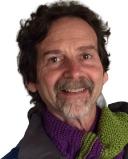Consumer Behavior
Biology and Awe: Psychology's Critical Juncture
The awakening of awe in psychology
Posted February 17, 2012
The following excerpt is from my Rollo May Award address for the Society for Humanistic Psychology (Division 32) of the American Psychological Association. It seems to me that this address is as timely now as it was back in 2004 when it was delivered. If the profession (MY profession) of psychology is not careful, it will end up a STEM (scientific, technological, engineering, and mathematics) nightmare, not just discipline, and we will all be the poorer for it. Now I have long been a fervent advocate for bridgebuilding (believe it or not!) but I fear that the bridges will soon crumble unless holism is reintroduced into psychology--as it has been in anthropology, physics, and even medicine! Here are some further thoughts from the address:
Recently, one of America's premier biopsychologists, Michael Gazzaniga (1998), wrote: "Today the mind sciences are the province of evolutionary biologists, cognitive scientists, psychophysicists, linguists [and] computer scientists....Psychology itself is dead" (p. xi). On the other hand, positive psychologists such as Martin Seligman and Mihalyi Csikszentmihalyi (2000) assure us that only parts of psychology are dead, and that "measurements" of the "good life" are very much alive (p. 7). Such is the turf we tread upon today, and such is the challenge for humanistic psychology as we enter the 21st century. From the standpoint of Rollo May (1967), who both anticipated and decried these recent developments, we have sent psychologists for 100 years to "a Dantean circus, and [many] have spent their days and nights at side shows" (p. 4)!
I want to suggest that even more than in the days of Rollo May, psychology faces a critical juncture-and humanistic psychology, in particular, hangs in the balance. Whether we become a new biologically-based discipline (as Gazzaniga in part implies), or a discipline that is still basically derivative of biology, with its reliance on overt and measurable variables and prescriptive formulations (as both Gazzaniga and Seligman advocate), the question remains, will psychology make room for the whole human being? Will psychology (following Nietzsche-remember "Beyond Good and Evil"?) make room for the terror and wonder, magnificence and mystery, or in short, awesomeness, that marks the human journey?
On the one hand I must say fretfully that the deck is not stacked in favor of this wider, deeper psychology. There are two basic reasons for this: high technology and free market consumerism. High technology has converged with free market consumerism to deliver one of the most powerful social seductions of all time: the availability of speed, instant results, and neatness and packaging-or in short, the efficiency model for living. The efficiency model for living tears through just about every social structure that we labor under today-from fast food restaurants, to high-speed information technology, to high speed medical and mental health delivery systems. Given this state of affairs, it is no wonder that psychology too is so impacted. Couple the efficiency model for living with psychology's long-standing envy of so-called "hard" science, and you have the deadly-and I do mean "deadening" as well as "deadly"-combination that Gazzaniga and company bespeak. Not only do you have the death of psychology as a unique inquiry of mind, you have the death of 5000 years of arts and humanities that do not conveniently fit into efficiency models of behaving.
For a peek at what we're up against today, consider cognitive scientist Steven Pinker's (2002) reduction of (non-narrative) art to a byproduct of "three...evolutionary adaptations: the hunger for status, the aesthetic pleasure of experiencing adaptive objects and environments, and the ability to design artifacts to achieve desired ends. On this view," he elaborates, "art is a pleasure technology, like drugs, erotica, or fine cuisine-a way to purify and concentrate pleasurable stimuli and deliver them to our senses" (p. 405). Does this guy have a clue? What happened to art as wonder, as the wellspring for discovery and illumination-anatomizing human pathos, as well as human aspiration? (Consider Picasso's "Guernica," Goya's "Sleep of Reason," and Rodin's "The Thinker.") Were these mere "pleasure technologies," like "drugs, erotica, or fine cuisine?"
And what of positive psychology's calibration of human virtue? Can vitality be distilled to the "good life;" poignancy to a well-being scale? Can depth and richness of experience be calculated, formulated, and operationalized, or does it need to be felt, sensed, and delicately evoked? The whole question of what it means to be fully, experientially human hinges on these aforementioned questions, and so does the integrity of psychology. We simply cannot foreclose on millennia of literary as well as experiential observation that our most vibrant souls have been abundantly wounded as well as resourceful, and that the likes of Ulysses, Oedipus, Dante, and Faust-Beethoven, Coleridge, Coltrane, and King, have impressed us, not as smooth-living self-gratifiers, but as angst-ridden social contributors.
Finally, why the enthrallment with brain scans and genetic studies, when they show only the most crude and general arousal patterns (in response, for example, to movies or controlled laboratory conditions); and when our finest, most attuned assessment devices ("instruments" of assessment) are millennia of dramas, literary narratives, and paintings? Pet and MRI scans can't hold a candle to these latter devices because they cannot come close to encompassing their nuances and arresting connotations. Moreover, there is often only one ultimate end toward which physiological detection aims-and that is drug-based application. And drug-based application has its place, of course; but is that the end we as a profession really want to emphasize? Or is that the very end that contributes in part to the cycle of despair and ennui that triggers the need for drugs in the first place-the quick fix, instant-result, "Eternal-Sunshine-of-the-Spotless-Mind" mentality, which is corroding our world? In short, do drugs resolve our problems or do they complicate them because they are in want of the one medicament that endures-depth awareness.
These then, are just a few of the challenges we face today, as we stand at the aforementioned crossroads; and it is also why so many humanists cry out for qualitative research and the training of qualitative researchers today: Without the artist's eye, and the eye of the heart, psychology will persist in its myopia-and so will our world! This is a call then, for rebalancing the qualitative-quantitative ledger in psychology, and for demanding, as authorities in human behavior, that funding sources recognize the value of this rebalancing. If we don't put out this call, who will, who can?
Note: This excerpt was also adapted from a passage in the article "Biology and awe: Psychology's critical juncture" in The Humanistic Psychologist, vol. 33, pp. 167-173.


